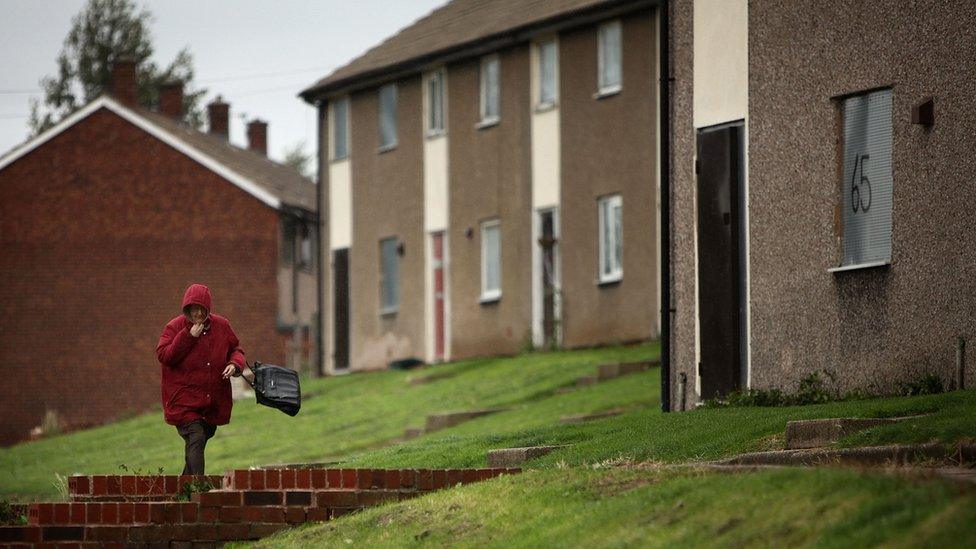Councils too quick to send in bailiffs, says Citizens Advice
- Published

Local authorities in England are being accused of being too quick to send in bailiffs to recover council tax debts.
A report from Citizens Advice says some councils also add extra charges, or take court action, rather than arrange manageable repayment plans.
The effect is to push people who are in financial difficulty even further into the red.
A local government spokesperson said councils do their best to protect such people, but they need to collect tax.
In many cases, council tax payers who miss a monthly payment are then required to pay the whole of the remaining cost for the year in one go.
Citizens Advice wants that practice to be stopped.
"Of course it's right people should repay their council tax - but calling in bailiffs, adding on extra charges or forcing someone to pay the rest of the year's council tax bill in one lump sum can make the situation worse for everyone," said Gillian Guy, the chief executive of Citizens Advice.
Rules
In one case uncovered by the charity, someone who owed £27 to the council found their debt rose to £417 by the time that fees had been charged and bailiffs had been called in.
The Local Government Association (LGA) said it agreed that use of bailiffs was a last resort.
It said that before that happens, people should have been written to, and helped with alternative payment plans.
"Councils have a duty to their residents to collect taxes, so important services are not affected," said an LGA spokesperson.
"But we realise that times are tough, and councils do their best to protect those affected the most, whether through introducing hardship funds or taking a sympathetic and constructive approach to the way we collect unpaid tax."
It said that it had worked with Citizens Advice on the rules for when bailiffs should, or should not, be used.